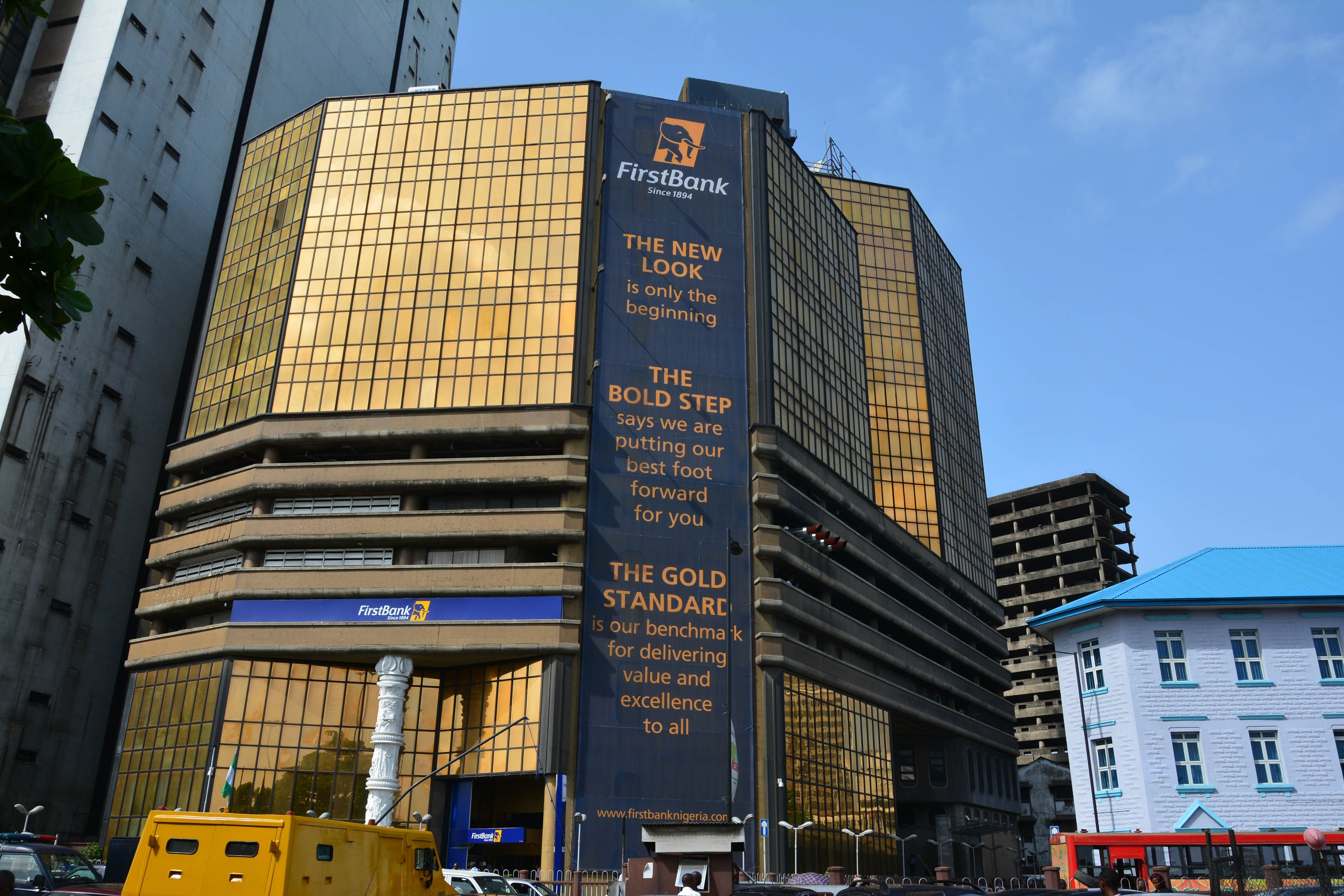Business
FirstBank Offers Support To SMEs in Education Sector Through the Pandemic

By Chinyere Nwokeoma, NAN
First Bank of Nigeria Limited has offered to give financial support to Small and Medium Enterprises (SMEs) in Education Sector to cushion the effects of the COVID -19 pandemic. Mr. Bankole Adediran, Head, Transaction Banking Products, FirstBank, made this known at the Bank’s SMEConnect webinar with theme: “Managing Your School through the Pandemic: Engagement and Retention Strategies”.
Adediran said that the Bank was ready to partner with SMEs in the education sector through the period of the novel coronavirus pandemic to sustain their businesses.
“FirstBank, as an institution, is very passionate about education, and will continue to support the sector,” he said.
He said that the Bank would continue to reinforce its leading role at enabling the growth of the educational sector in the country.
Adediran said that the Bank had an array of financial products that could be accessed by SMEs in the educational sector in the period of COVID -19.
He said SMEs in the sector could key into FirstEdu Loan targeted at private nursery, primary and secondary schools to assist the schools in achieving their desired growth in medium and long terms.
According to him, the product provides funding advancement of up to N20 million for schools with a minimum of 100 students with school fees collection domiciled at FirstBank.
Adediran said that, with the product, school owners/proprietors could stay ahead to make learning easy and conducive for students.
He said the Bank had launched various interventions and initiatives to support the sector to navigate through challenges occasioned by COVID -19.
He noted that FirstBank recently launched an e-learning initiative aimed at reaching out to one million students across the country to ensure they would be academically engaged while at home.
Adediran also said that the Bank supported 10 universities and three secondary schools across the country with major infrastructure projects.
He added that the Bank donated 20,000 e-learning devices to the Lagos State Government to promote online learning for students in the public schools.
Adediran urged schools must learn from the COVID -19 pandemic by embracing automation to plug leakages in the sector.
Mrs. Folasade Adefisayo, Commissioner for Education, Lagos State, who was a panelist at the webinar, commended the Bank for donating 20,000 devices with six months data, to the state for e-learning.
Adefisayo said the state reached out to many companies for support at the wake of the pandemic and that FirstBank came to its aid.
She disclosed that all the schools were not prepared for the situation, noting that most children in public schools did not have device and data for online learning.
“This pandemic has been a terrible thing, and one lesson from it is that we have not invested enough in solutions we can deplore at a time like this,” Adefisayo said.
She said that the pandemic had forced Nigerians to be more creative and innovative, adding that schooling would no longer be the same again.
Adefisayo called on teachers to change their teaching and learning strategies, saying that COVID -19 had changed learning.
Also, Dr. Yomi Otubela, President, National Association of Proprietors of Private Schools (NAPPS), said the association had responded greatly by interfacing between government and its agencies since the beginning of the pandemic.
Otubela said the Central Bank of Nigeria was working out modalities for palliatives for schools and teachers who had not been receiving salaries since the pandemic started.
He noted that there had been an increase in rape, kidnapping and robbery as a result of COVID -19.
Mr. Wale Abioye, Team Lead, Customer Practice in Management Consulting (KPMG), said the pandemic had impacted negatively on many sectors of the economy, especially education.
Abioye highlighted some of the negative impacts of the pandemic to include financial/economic, structural, social and policy challenges.
He said many SMEs in the educational sector could be out of business due to the pandemic, thereby increasing unemployment rate.
Mr. Babatunde Vaughan, Education Lead, Modern Classroom, Microsoft Nigeria, said the company had introduced a lot of products to make online learning easy and interesting.
“COVID -19 is a very unique period for everyone, change has come and we will continue to experience change.
“We must be more proactive than reactive,” Vaughan urged.
Business
FirstBank Launches 500-Seater Bleacher at Carnival Calabar & Festival 2025

West Africa’s premier financial institution and financial inclusion services provider, FirstBank, has officially announced its sponsorship of the Carnival Calabar & Festival 2025, unveiling a landmark addition set to redefine the carnival experience — the first-ever private premium seating area at the event.
The highlight of FirstBank’s participation is the construction of a 500-seater premium bleacher, designed to provide comfort, safety, and an elevated viewing experience for carnival enthusiasts.
Speaking on the sponsorship, the Acting Group Head Marketing and Corporate Communications, FirstBank, Olayinka Ijabiyi, noted that the carnival aligns with the Bank’s First@Arts initiative, a platform dedicated to supporting the creative arts value chain across Nigeria. He said, “We recognise the transformative power of the arts, including carnivals, in inspiring people and strengthening national unity. For more than 131 years, we have supported platforms that promote self-expression, social reflection and cultural exchange. Our investment in the Carnival Calabar & Festival demonstrates our commitment to preserving the nation’s rich cultural heritage through First@Arts.”
“As part of our sponsorship this year, we are introducing the first-ever private 500-seater premium bleacher to further elevate the carnival experience. This exclusive seating is designed to provide exceptional comfort and an unforgettable viewing experience for attendees,” Ijabiyi added.
The Chairman of the Cross River State Carnival Calabar Commission, Gabe Onah, also commented on FirstBank’s sponsorship. “FirstBank’s involvement is a strong demonstration of private-sector support for culture and tourism. This partnership not only enhances the overall quality of the carnival but also strengthens its global appeal,” he said.
The Carnival Calabar & Festival 2025 is officially marketed by Okhma Global Limited, the appointed Official Marketer responsible for brand partnerships, promotional engagements, and ticket sales. Okhma Global Limited has partnered with the Cross River State government in delivering Carnival Calabar & Festival for over ten years, playing a key role in strengthening the carnival’s commercial growth and global visibility.
Business
Yuletide: Ecobank Urges Vigilance, Guarantees Seamless Banking

Ecobank Nigeria, a member of Africa’s leading pan-African banking group, has assured customers of uninterrupted access to banking services throughout the year-end holiday period via its secure and robust digital platforms. The Bank also urged customers to remain vigilant against fraud and scams during the festive season.
Speaking on the development, Victor Yalokwu, Head, Products & Analytics, Consumer & Commercial Banking, Ecobank Nigeria, said the Bank’s digital channels — including the Ecobank Mobile App, Ecobank Business App, USSD *326#, Ecobank Online, OmniPlus, Omnilite, EcobankPay, RapidTransfer, Ecobank Cards, ATMs, PoS terminals, and over 35,000 Ecobank Xpress Point (Agent Banking) locations nationwide — will remain fully available to support customers throughout the yuletide and year-end holiday period.
He noted that customers will continue to enjoy a wide range of services during the period, including local and international funds transfers, bill payments and airtime top-ups, merchant payments, balance inquiries and account statements, as well as cardless cash withdrawals via ATMs.
According to Yalokwu, “Ecobank encourages customers to leverage these digital solutions for safe, fast, and efficient banking, especially during the festive season when convenience and reliability are essential. While physical branch operations may be subject to adjusted working hours in line with public holidays, customers can be assured that Ecobank’s digital platforms are designed to deliver uninterrupted service and enhanced security at all times. Ecobank remains committed to providing innovative financial solutions and exceptional customer service, and we wish all our customers a joyful festive season and a prosperous New Year.”
Yalokwu also cautioned customers to remain vigilant against fraudsters and scammers during the period. “Before you wrap up the year, tighten your security. December brings online sales, travel, and year-end distractions—this is exactly when scammers are most active. From fake festive deals to cloned merchant sites and suspicious messages, staying vigilant helps keep your money safe.”
He advised customers to shop only on trusted websites, never share their PINs, passwords, or one-time passwords (OTPs), avoid banking on public Wi-Fi networks, be cautious of urgent or emotionally charged messages, and regularly review their account activity.
Business
Fidelity Bank Donates Hoses, Water Pumps to Fire Service

Fidelity Bank Plc has donated firefighting and preventive equipment, including hoses and gasoline-powered water pumps, to the Ikoyi Fire Service Station in Lagos, reinforcing efforts to improve emergency response and promote community safety.
The donation was executed under the Fidelity Helping Hands Programme (FHHP) by the bank’s True Serve team. Through the initiative, Fidelity Bank employees identify critical community needs, raise funds, and receive matching financial support from the bank to implement impact-driven projects.
Speaking on the initiative, Divisional Head, Brand and Communications Division at Fidelity Bank, Dr Meksley Nwagboh, said the intervention reflects the bank’s commitment to public safety, environmental protection, and sustainable community development.
“Community safety is a shared responsibility. Fidelity Bank remains committed to supporting initiatives that protect lives, property, and the environment,” Nwagboh said, adding that preventive measures remain more effective than emergency responses.
He noted that providing the right tools to first responders aligns with the bank’s broader goal of enabling people to live safe, meaningful, and empowered lives.
Lagos State Controller of the Federal Fire Service, Controller of Fire (CF) Funke Adebayo, commended Fidelity Bank for the timely support, particularly as the festive season approaches amid dry weather conditions that heighten fire risks.
She urged residents to remain vigilant and warned parents against allowing children to handle fireworks during celebrations, stressing that careless handling of fire could lead to avoidable disasters.
Adebayo also disclosed that the Fire Service has intensified sensitisation visits to corporate organisations to promote fire safety and discourage unsafe practices.
Also speaking, Area Commander, Onikan Fire Station, Chief Superintendent of Fire (CSF) Oswere Michael, expressed appreciation for the donation, noting that it would strengthen the station’s operational capacity.
He encouraged households, businesses, and community members to prioritise fire safety, describing collective responsibility as critical to preventing fire outbreaks.
Fidelity Bank Plc is a full-fledged commercial deposit money bank serving over 9.1 million customers through its digital platforms, 255 business offices across Nigeria, and its UK subsidiary, FidBank UK Limited. The bank has received multiple local and international awards in recognition of its performance in digital transformation, MSME banking, and innovative financial services.
Photo – L-R: Lagos State Controller, Federal Fire Service, CF (Controller of Fire), Adebayo Funke; Tolulope Rojaiye, Marketing Business Partner, Fidelity Bank Plc; Assistant Superintendent of Fire, Ishola Folorunsho Olufemi; and Station Commander, Onikan Fire Station, Lagos, Okeke Ferdinand; during the donation of firefighting equipment to the Federal Fire Service at Ikoyi, Lagos, recently.






